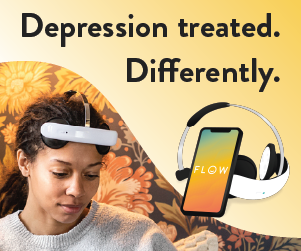Table of Contents
ToggleDialectical behavior therapy (DBT) has emerged as a promising therapeutic intervention for individuals struggling with depression.
This treatment approach utilizes various techniques, such as mindfulness, distress tolerance, emotional regulation, and interpersonal effectiveness, to help address the emotional dysregulation commonly seen in depression.
Studies have shown that participating in DBT training can lead to a significant reduction in depressive symptoms.
By engaging in this therapy, individuals may experience enhanced social skills, a better self-image, increased interest in social activities, improved concentration, and a decrease in physical symptoms associated with depression.
- DBT is an effective approach for treating depression.
- DBT utilizes techniques such as mindfulness, distress tolerance, emotional regulation, and interpersonal effectiveness.
- Participating in DBT training can lead to a significant reduction in depressive symptoms.
- DBT offers benefits including enhanced quality of life, improved social skills, better self-image, increased interest in social activities, improved concentration, and a decrease in physical symptoms of depression.
- The four main components of DBT for depression are mindfulness, distress tolerance, emotional regulation, and interpersonal effectiveness.
As we delve deeper into the topic of DBT for depression, we will explore its key components, the evidence supporting its efficacy, and the duration and progress individuals can expect in their DBT journey.
Understanding DBT for Depression
Dialectical Behavior Therapy (DBT) is a comprehensive treatment approach that focuses on addressing emotional dysregulation, which is commonly seen in depression.
One of the key aspects of DBT for depression is mindfulness, which involves cultivating present-moment awareness and acceptance.
It helps individuals observe their thoughts and feelings without judgment, allowing them to gain better control over their emotional responses.
By practicing mindfulness, individuals can develop a greater sense of self-awareness and learn to regulate their emotions more effectively.
Emotional regulation is also a key element of DBT for depression. It involves developing strategies to identify, understand, and manage one’s emotions.
By acquiring these skills, individuals can enhance their emotional well-being and decrease the negative impact that intense or overwhelming emotions can have on their mental health.
Furthermore, interpersonal effectiveness skills are taught in DBT to help individuals improve their relationships and communication skills, ultimately leading to a more satisfying and fulfilling social life.

| Component | Description |
|---|---|
| Mindfulness | Developing present-moment awareness and acceptance of thoughts and feelings. |
| Distress Tolerance | Building skills to cope with distressing situations and emotions without engaging in harmful behaviors. |
| Emotional Regulation | Learning strategies to identify, understand, and manage emotions effectively. |
| Interpersonal Effectiveness | Improving communication skills and building satisfying relationships. |
The Benefits of DBT for Depression
One of the key benefits of DBT for depression is an enhanced quality of life.
By learning mindfulness techniques and distress tolerance skills, individuals can develop a greater sense of self-awareness and coping mechanisms to navigate challenging situations.
These skills can lead to improved social interactions and a better overall self-image, allowing individuals to engage more confidently in social activities and feel a greater sense of fulfillment.
Moreover, participating in DBT for depression can also help individuals improve their concentration and decrease physical symptoms associated with depression.
| Benefits of DBT for Depression |
|---|
| Enhanced quality of life |
| Improved social skills and self-image |
| Increased interest in social activities |
| Improved concentration and cognitive functioning |
| Decreased physical symptoms of depression |
While DBT programs for depression can last anywhere from 6 months to a year, many individuals notice gradual improvements along the way.
The four main components of DBT for depression, which are mindfulness, distress tolerance, emotional regulation, and interpersonal effectiveness, provide individuals with a comprehensive set of skills to manage their emotions and improve their mental well-being.
Also worth noting, DBT is beneficial in decreasing self-harm and suicide attempts among individuals struggling with depression.
These findings highlight the importance of DBT as a valuable treatment option for individuals looking for long-term relief from depressive symptoms.

The Four Components of DBT for Depression
These components are essential for individuals struggling with depression to develop healthier coping mechanisms, manage overwhelming emotions, and improve their overall well-being.
Mindfulness:
Mindfulness involves being fully present in the current moment, without judgment or attachment to thoughts or emotions.
Through mindfulness exercises, individuals learn to observe their thoughts and feelings without reacting impulsively. T
his component helps individuals develop greater self-awareness and acceptance, allowing them to respond to challenging situations with more clarity and composure.
Distress Tolerance:
Distress tolerance focuses on enhancing an individual’s ability to tolerate and survive distressing situations.
It involves learning strategies to distract oneself from emotional pain, self-soothe in healthy ways, and ride out intense emotions without resorting to destructive behaviors.
By developing distress tolerance skills, individuals can navigate through difficult moments without succumbing to impulsive or harmful actions.
Emotional Regulation:
Emotional regulation helps individuals gain control over their emotions and healthily regulate them.
This component involves recognizing and understanding one’s emotions, identifying triggers, and implementing effective strategies to manage and express emotions appropriately.
By learning emotional regulation skills, individuals can reduce emotional volatility and develop more stable and balanced emotional responses.
Interpersonal Effectiveness:
Interpersonal effectiveness focuses on improving communication, assertiveness, and relationship skills.
It helps individuals develop healthy boundaries, express their needs and wants, and navigate challenging interpersonal situations.
By enhancing interpersonal effectiveness, individuals can build and maintain meaningful relationships, which can contribute to improved emotional well-being and overall life satisfaction.

Engaging in DBT for depression offers individuals a comprehensive approach to address the complexities of their mental health.
The combination of mindfulness, distress tolerance, emotional regulation, and interpersonal effectiveness provides individuals with a solid foundation for managing depressive symptoms and improving their overall quality of life.
Evidence of DBT’s Efficacy for Depression
Numerous studies have demonstrated the efficacy of DBT in significantly reducing depressive symptoms and improving overall well-being.
DBT incorporates a combination of cognitive-behavioral therapy techniques and elements of Eastern mindfulness practices to address emotional dysregulation commonly associated with depression.
One study, published in the Journal of Consulting and Clinical Psychology, found that participation in a DBT program resulted in a significant decrease in suicidal ideation and self-harm behaviors among individuals with depression.
Another study, published in Behavior Research and Therapy, reported that participants who completed a DBT program experienced a reduction in depressive symptoms and improved social functioning compared to those who received standard treatment.
In addition to reducing depressive symptoms, DBT has been found to have a positive impact on various aspects of individuals’ lives.
Research has shown that individuals who engage in DBT therapy experience an enhanced quality of life, improved social skills, better self-image, increased interest in social activities, improved concentration, and a decrease in physical symptoms associated with depression.

Implementing DBT Skills in Daily Life
DBT therapy equips individuals with practical skills that can be applied in their daily lives.
These skills include mindfulness, distress tolerance, emotional regulation, and interpersonal effectiveness.
Mindfulness techniques help individuals stay present in the moment and nonjudgmentally observe their thoughts and feelings, allowing for greater self-awareness and emotional regulation.
Distress tolerance skills help individuals cope with difficult emotions and situations without resorting to harmful or self-destructive behaviors.
Emotional regulation skills enable individuals to identify and manage their emotions in healthier ways, reducing emotional volatility and enhancing overall well-being.
Interpersonal effectiveness enhances communication, assertiveness, and relationship-building. This helps individuals navigate social interactions and strengthen relationships.

Using DBT skills daily enhances coping, improves relationships, and boosts emotional well-being.
Duration and Progress of DBT for Depression
DBT for depression usually involves a program that lasts for several months to a year, allowing individuals to develop and refine the skills necessary for managing depressive symptoms.
This duration allows for comprehensive training and practice in the various techniques and strategies employed in DBT.
Over time, individuals can gain a greater understanding of their emotions and learn to regulate them effectively.
Throughout the DBT program, participants can experience gradual progress in managing their depression.
They begin by learning foundational skills such as mindfulness, which enables them to observe and accept their thoughts and emotions without judgment.
As the program advances, participants learn skills to handle distress without harmful coping methods.
This can lead to a reduction in the intensity and duration of depressive episodes.

With regular DBT practice, individuals can better manage depression and enhance life quality and mental control.
| Component | Description |
|---|---|
| Mindfulness | Focuses on being present in the moment, observing thoughts and emotions without judgment |
| Distress Tolerance | Teaches healthy ways to cope with distressing situations without resorting to harmful behaviors |
| Emotional Regulation | Helps individuals identify, label, and regulate emotions, reducing the intensity and duration of depressive episodes |
| Interpersonal Effectiveness | Improves communication and relationship-building skills, reducing feelings of isolation and enhancing social connections |
A Word from HealthyVibe
In conclusion, the transformative power of Dialectical Behavior Therapy (DBT) cannot be overstated.
DBT combines techniques like mindfulness and emotional regulation, offering hope for those with depression.
Not only does it pave the way for a marked decrease in depressive symptoms, but it also enhances the overall quality of life.
Moreover, when coupled with antidepressant medication, its efficacy soars, further reducing the risks associated with severe depression, such as self-harm and suicide attempts.
As we navigate the complexities of mental health, embracing evidence-based approaches like DBT becomes paramount in our journey towards fostering resilience and recovery.
FAQ
How effective is DBT for depression?
DBT has been shown to be an effective approach for treating depression. It uses mindfulness, distress tolerance, emotional regulation, and interpersonal skills to address depression-related emotional dysregulation.
DBT training reduces depression, improves life quality, social skills, self-image, and focus, and decreases physical symptoms.
What are the four main components of DBT for depression?
The four main components of DBT for depression are mindfulness, distress tolerance, emotional regulation, and interpersonal effectiveness.
These components teach skills that help individuals process emotions appropriately, tolerate distress, regulate emotions, and enhance interpersonal relationships.
Can DBT be used alongside antidepressant medication?
Yes, research has shown that DBT can augment the effects of antidepressant medication.
It has been found to reduce depressive symptoms and decrease self-harm and suicide attempts when used in conjunction with medication.
How long does a DBT program for depression typically last?
DBT programs for depression can last from 6 months to a year. However, many people notice gradual improvements along the way as they learn and practice the skills taught in DBT.
What evidence supports the efficacy of DBT for depression?
Numerous studies have demonstrated the effectiveness of DBT in treating depression. Research has shown that DBT training leads to a significant reduction in depressive symptoms and can improve overall well-being. Additionally, DBT has been found to be effective in reducing self-harm and suicide attempts.











